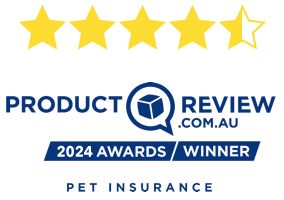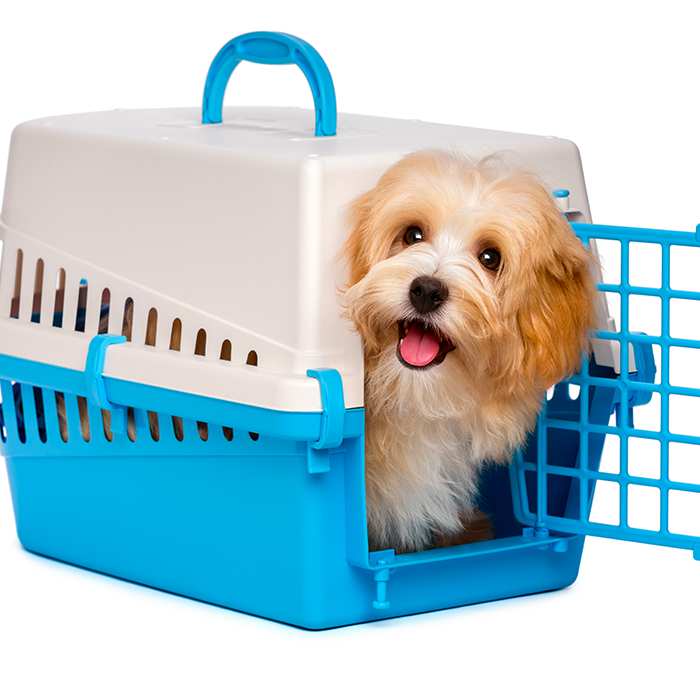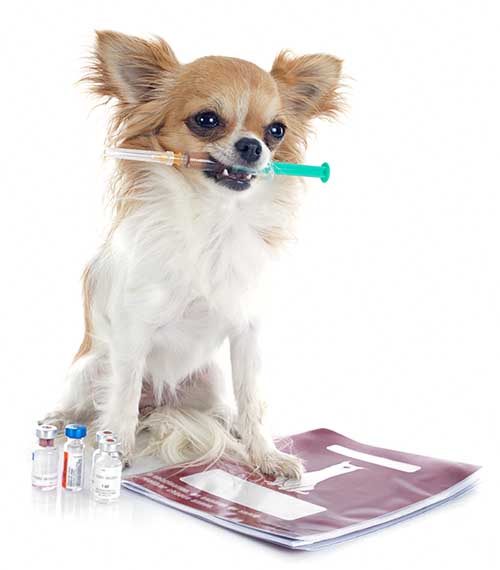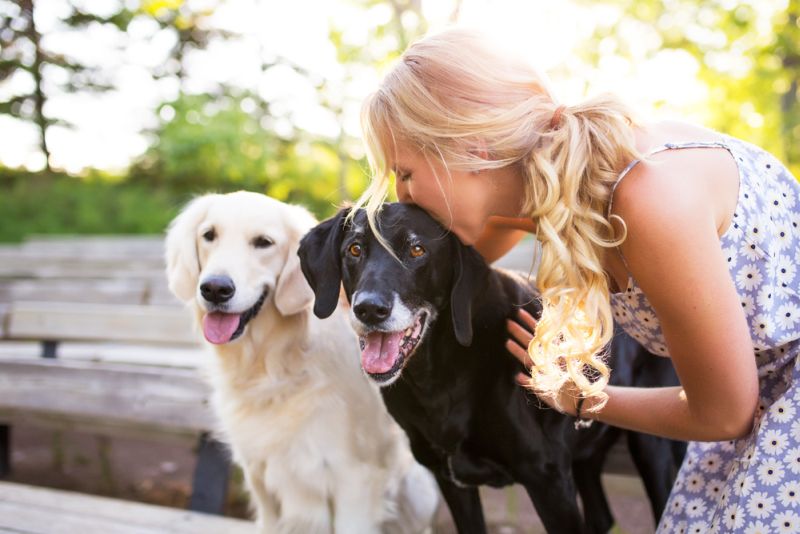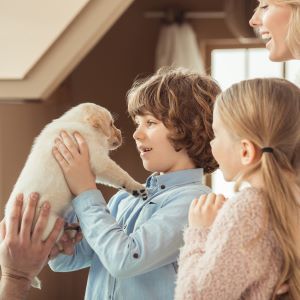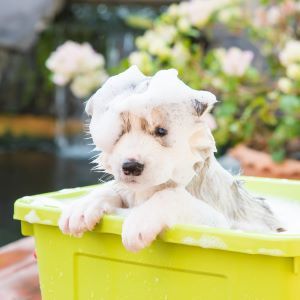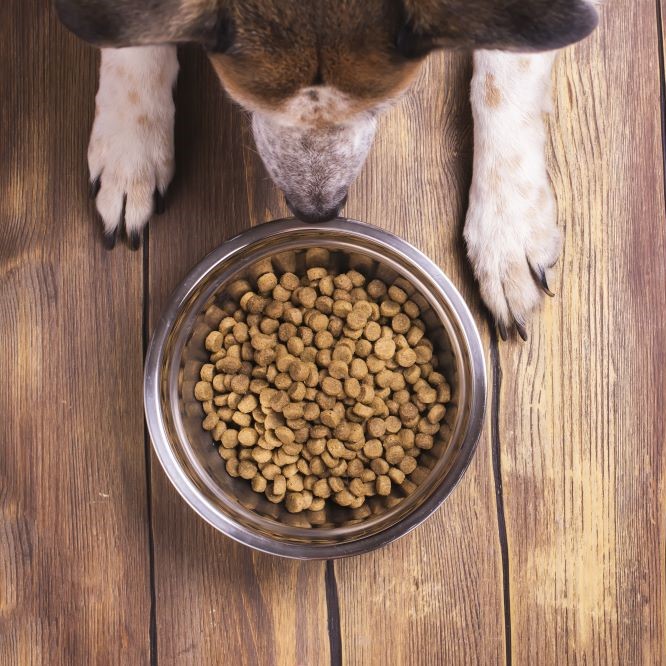How To Toilet Train A Puppy
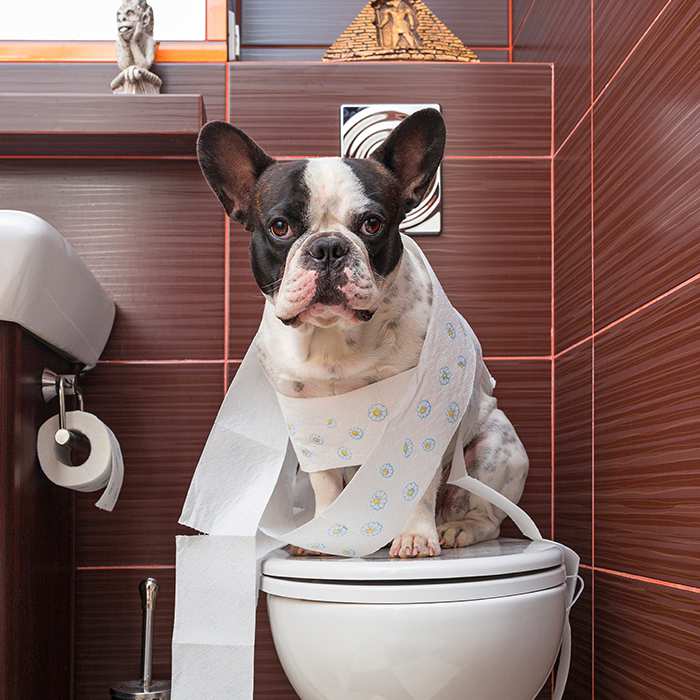
Toilet training puppies can be tricky, frustrating, and more than a little messy, but it’s an essential part of a dog’s development that will make your life much easier, and less messy, in the long run!
Fortunately, there are lots of very useful tips we can share to help you toilet train your pup as quickly and easily as possible.
Watch our Puppy toilet training webinar
When to start
Toilet training can begin as soon as you get your puppy.
The earlier you start toilet training your puppy, the faster you will have a dog that knows to go outside to do its business. If you are consistent in your training, you can expect rapid results.
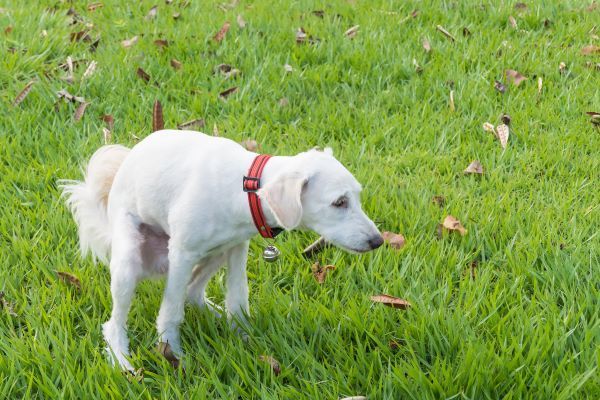
Just remember, puppies’ digestive systems are very active. They eat and drink more than adult dogs, and also get fed more frequently, but their tummies are smaller. That means they’ll need to pee and poop fairly often!
What you’ll need
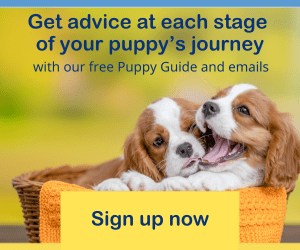 When toilet training your pup, you’ll need puppy pads or newspaper, paper towel, enzymatic stain cleaner, PATIENCE and a supply of nutritious treats to reward your pup when he makes the right choice.
When toilet training your pup, you’ll need puppy pads or newspaper, paper towel, enzymatic stain cleaner, PATIENCE and a supply of nutritious treats to reward your pup when he makes the right choice.
Puppy training pads are a cheap and effective way of showing puppies where they’re allowed to do their business. They’re available at pet shops and supermarkets but can also be purchased in bulk online. They work really well because they’re absorbent, odour-neutralising and they emit a special scent which attracts the puppy to pee or poo on the pad rather than elsewhere around the house. Artificial grass training mats are another option worth considering.
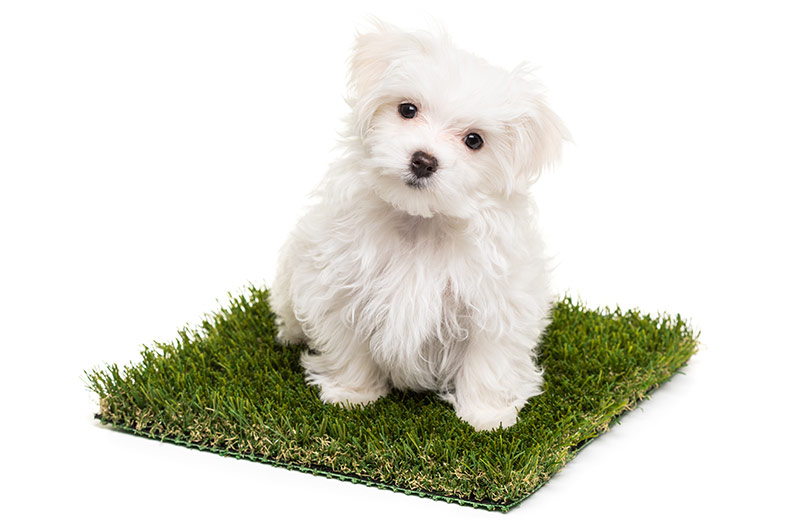
At first (and even occasionally down the track) your puppy may decide to do his business elsewhere, or even more annoyingly, just a few centimetres away from the puppy pad!. When this happens, quickly clean it up with paper towel and enzymatic stain cleaner. The cleaner will remove the smell so your dog is less likely to go in the same area again. As wee smell attracts your puppy to go back to the area, absorb the puddle with a puppy pad to attract your puppy to go on to the wee pad.
The best enzymatic stain cleaners can be purchased at pet stores or at your local vet. They eliminate the stain as well as odours that are undetectable by humans. Cleaning up properly after your dog’s accidents is of utmost importance because otherwise he will smell all the pee places inside your house and will seek them out the next time he needs to go. Products like tea tree oil, disinfectant, house hold cleaners and vinegar don’t work as reliably.
How to react when your dog does the right or wrong thing
Young puppies are just like babies – they don’t have any control over what they do, they just go when they need to. Getting angry at your puppy won’t help, as they don’t know what they’ve done wrong. The most important thing when toilet training your dog is not to use negative reinforcement. If you catch your dog having an accident, don’t say anything, just clean it up as soon as he finishes. The best way to react is to calmly clean up the mess without shouting, scolding or punishing.
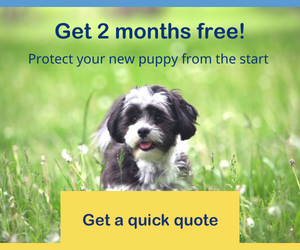 Dogs respond best to positive reinforcement, so be sure to reward yours with a treat and affection when he does the right thing (though, you may find that like most puppies, he prefers the treat to the affection!). Always reward your puppy immediately and enthusiastically when he finishes his toileting outside, on the pad or wherever you want him to do it. Use treats your puppy loves and have them handy near the area you want your puppy to toilet. Dogs learn through repetition, so the more they toilet in the right spot and get rewarded for it, the more they will learn that this is the place to do their business.
Dogs respond best to positive reinforcement, so be sure to reward yours with a treat and affection when he does the right thing (though, you may find that like most puppies, he prefers the treat to the affection!). Always reward your puppy immediately and enthusiastically when he finishes his toileting outside, on the pad or wherever you want him to do it. Use treats your puppy loves and have them handy near the area you want your puppy to toilet. Dogs learn through repetition, so the more they toilet in the right spot and get rewarded for it, the more they will learn that this is the place to do their business.
Make sure you watch out for the signs prior to your puppy doing a wee or a poo: these may be just waking up, stopping play, moving away or sniffing around. If you see your pup walking around in circles while sniffing the floor, there’s a pretty good chance something’s about to happen. When you see this behaviour, take your dog immediately to its toilet area and reward him for doing his business there. The best way is to take your puppy on a lead and guide him to the right spot, as carrying him won’t teach him how to get to the right toilet spot.
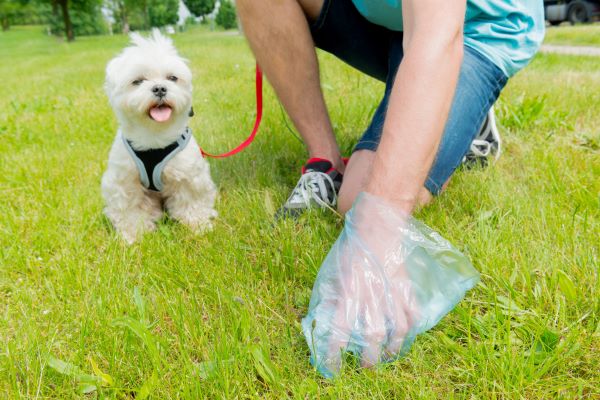
Some helpful tips:
- Your puppy’s age in months plus one is the number of hours your puppy will be able to hold its pee; so, an 8 week old puppy can hold for 3 hours during the day.
- On top of that, your puppy will need to pee after a nap, or after resting, after play and training, and after being released from confinement.
- Your puppy will need to poo around 20 to 25 minutes after eating.
- If you are in doubt if your puppy needs to toilet, assume it will.
- After a while, you’ll get used to your dog’s toilet patterns.
Remember: housebreaking takes time and patience, so don’t expect miracles overnight. When your dog is completely toilet trained, you’ll appreciate that all the effort and hard work was worth it.
The do’s of toilet training:
- Clean up with enzymatic stain cleaner every time your puppy has an accident.
- Keep a container with special treats and a leash near the door or the place where you want your pup to do its business – this way you are ready to reward right away, while the leash will come in handy when you want to show your pup where to toilet.
- Reward your dog with much fanfare for toileting in the right spot – make this the most exciting time of the day!
- Give the reward immediately, within 3 seconds after your pup finishes toileting.
- If your puppy pees at night, remove his access to water (if medically permitted).
- Take your puppy for a final toilet walk just before you go to bed; the movement will help to activate the digestive system.
- Make sure your poo walk is boring, so your puppy doesn’t get too distracted and forgets that it wants to poop.
- Log your toileting successes and accidents in a list. This will help you to see the progress and notice if there may be any medical issues that could impact on toilet training (e.g. urinary tract infections are quite common in puppies).
The don’ts of toilet training:
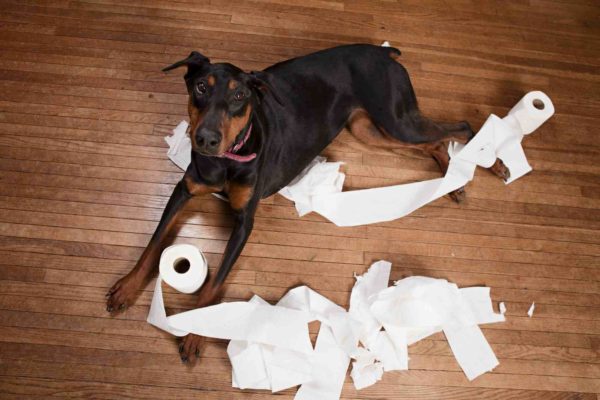
- Don’t give your pup the run of the house if you can’t supervise him. Limiting your dog’s access will help with toilet training. Use a puppy playpen or a fenced off area when you can’t supervise your puppy.
- Don’t leave food out the entire day as scheduled feeding times will help you to get a schedule on pooping times.
- Never punish your dog for accidents inside the house, even if you catch him in the act.
Puppies are very adventurous and highly accident prone, and often end up hurting themselves whilst they are still growing. Their underdeveloped immune system means they are also vulnerable to getting infections and catching diseases.
Consider pet insurance to help protect you and your puppy from the start. Get your first 2 months cover free 2!
Bow Wow Meow Pet Insurance can help protect you and your puppy should an unexpected trip to the vet occur.

